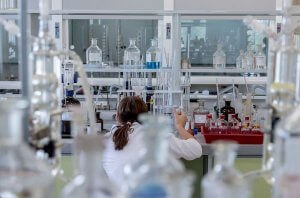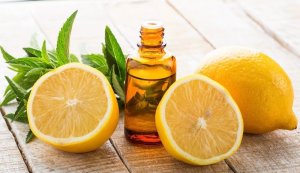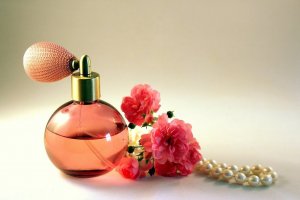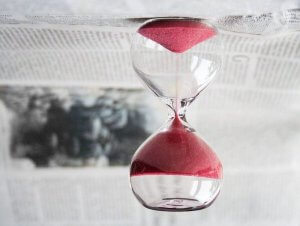A dynamic kaleidoscope of ideas, expertise and observations collide and galvanize the blending of diverse ingredients that seed the most elemental aspects of fragrance formulation.
At the heart of it all is raw and powerful passion that is harnessed by a team of perfume masters who blend technical knowledge that has taken decades to accrue and creative genius to bring to life never before known fragrant amalgams that affect human memory and emotion.
There is much more involved in formulating a new fragrance than that which meets the uneducated eye. The blending of ingredients is the physical manifestation of the process, which is a delicate synthesis of contemplation, didactics and investigation.

Our fragrance designers at Alpha Aromatics work closely with the creator of the fragrance brief, which is the building block of perfume formulation, combining expertise and creative panache with acute technical knowledge and artful innovation.
Fragrance creation is our art form, our passion, and while most of the work we do centers around the artistry of formulating new innovative scents for companies across almost every industry, there are rare times a client will approach us with a request to match or recreate an existing fragrance.
These include but are not limited to instances where customers incur long lead times, poor performance or quality control issues with their current fragrance supplier and are looking to improve both the process and the actual scent.

Here are 9 qualities to look for in a quality fragrance oil purchaser.
What Exactly Is Scent Replication?
The essence of a perfume lies in the manner in which its ingredients are used. A resulting scent cannot be exactly duplicated, and reputable perfume companies make sure that their loyal customers understand that in the case of scent duplication, they are not buying the original fragrance but rather one that is nearly identical to the original, and satisfying the client and their customer base.
A company can patent diverse processes, such as new ways to extract scent from organic materials, or the creation of a new chemical.
A perfume name, logo and package design can be trademarked, since they belong to a particular company, but scent itself is not a commodity that can be published or copyrighted. This explains the need for perfumers to keep their formulations top secret.
Alpha Aromatics and Scent Matching Or Duplication
Our master perfumers are primarily artists and not scent duplicators. They wear that particular hat only when we receive requests from people or companies requesting the recreation of a particular scent.
When asked to replicate a fragrance, Vice President and master perfumer/chemist/magician, Roger Howell and his team take the fragrance, break it down and rebuild it from scratch.
It’s an artful process in and off itself that represents the combination of artistry with experience and knowledge of what to use and how much to use.

In Roger’s own words: “Most perfumers like to see themselves as creative. Replicating is like looking at a painting, and trying to recreate it and putting your name on it. The near mirror image of a scent can be done via GCMS (Gas chromatography–mass spectrometry (GC-MS). This is an analytical method that combines the features of gas-chromatography and mass spectrometry to identify different substances within a test sample. The one thing I can say about a remake is that there are materials used sometimes that are unexpectedly found in the process, which is 95% science, artistry and experience and reliance on my nose for the remaining 5%.”
There is no substitute for knowledge, training and hands-on experience. Once again according to Howell: “…At Alpha Aromatics, I’ve developed a course that requires everyone to study and identify more than 20 raw materials that are often used in creating scents and perfumes. Everyone at this company has the knowledge to provide our customers with the best scented products available on the market, including those used in fine fragrances, personal care products, home care, candles, and natural and organic products.”
Understanding Scent Replication
In their own unique and pragmatic way, all art forms are imitations of life. (Consider any best selling novel on the market today. Word for word, from cover to cover, everything is an untruth.) The “truth” about perfume lies in the perfumer’s deft treatment of a chosen perspective. It is said that the more a work of art( no matter what the medium) can be manipulated, the better it is.
Scent memory and composition represent the foundation of perfume formulation. Today, perfumery finds itself at a new crossroads in the sense that the industry has become a dynamic cosmos driven by innovation and focused on analyzing and replicating existing fragrances.

Scent replication usually involves four distinct steps. The first concerns finding the chosen fragrance somewhere in writing that can be used as a guide to the ingredients needed for the formulation. The second aspect involves both notes and votes.
By this what is meant is that usually there are two lists presented in the description of any perfume; one concerns ingredients and the other the opinions of what reviewers of the fragrance claimed to have inhaled when sniffing the perfume. Step number three involves acquiring the specific notes and number four marks the beginning of the experimental stage in perfume duplication.
4 Instances When Scent Replication Is Necessary
There are several situations that merit the duplication of a particular scent. The following list and subsequent descriptions of each point represent the key instances a company may finds themselves in need of changing their fragrance designer and in need of replicating an existing fragrance.
When Is Fragrance Replication Necessary?
1) A fragrance supplier has quality control issues
2) A supplier has very long lead times
3) The need for a back up fragrance designer and supplier
4) A fragrance supplier provides poor customer service
Incurring Very Long Lead Times
Managing production lead time, including all the processes required to create and ship a product, lies at the heart of successful manufacturing. When a supplier is unable to deliver products quickly enough to meet a consumer and/or business need, the writing is on the wall to seek another who can.

It is unlikely that such a situation will turn around any time soon, as this fracture in supply chain operations usually results in both the loss of market share and the diminishing of volume purchasing. There is also a significant impact on a company’s reputation as well as the potential for compensation payments for delays in product delivery.
A Supplier Has Quality Control Issues
The lack of product quality can be a major reason to seek the duplication of a favored scent. This can be a defect, deficiency, or significant variation in a product’s expected appearance or performance.
Quality product control can only thrive within a setting such as that found with our teams at Alpha, where perfection is the ultimate goal of both management and personnel. This is hard work and demands establishing quality standards and meticulously testing products for variations from the selected criteria.

The Need For A Back Up Supplier
Things happen, and when they do, no matter what the product, companies that are dependent on only supplier can find themselves up a creek in the case of unforeseen circumstances, such as a fire and/or the purchase and acquisition of one supplier by another. Such occurrences can affect the flow of supply and demand and can be avoided by having other irons in the fire, so to speak.
A Supplier Provides Poor Customer Service
This aspect would never be a factor when dealing our team members. Our reputation is stellar and unparalleled within the perfume industry. When in place, customer service is a seamless aspect of business operations, but when it is lacking, it can be the primary reason why a customer will go elsewhere for services.
In conclusion
A replicated or matched scent can never be exact, but it can come as close to the original fragrance as one can reasonably expect. It is likely to be a little stronger than the original due to the fact that fragrance oils lack alcoholic content.
Our innovations in aroma science and magical artistry explode, making fragrance recreation a formidable art form. With technological expertise at the helm, the only limits for human creativity are those imposed by the singular imagination.
Contact our teams for any new creation or duplication needs today!
Final thought on perfume: …Love is and must be free. It rises from the heart like perfume from a flower. ~ Robert Green Ingersoll

Photo Credits: Pixabay and Jonas Neilson
 alpha aromatics®
alpha aromatics®